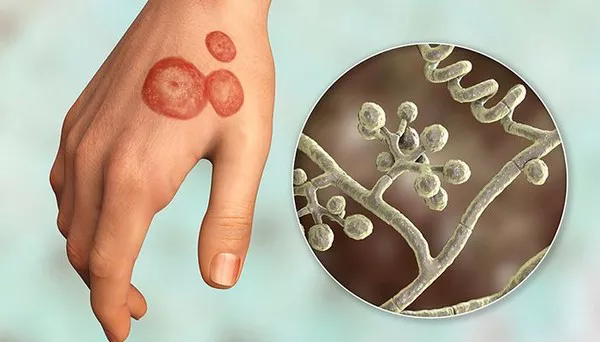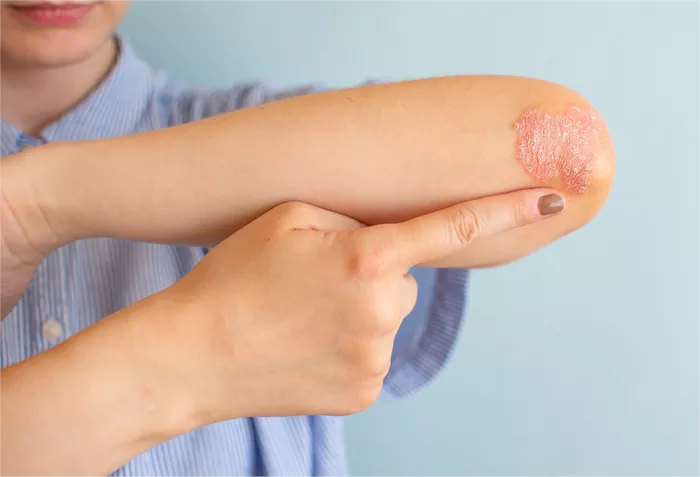Ringworm, despite its misleading name, is not caused by a worm but by a fungus. It is a common fungal infection that can affect the skin, scalp, and nails. Despite being generally considered a mild condition, ringworm can cause discomfort and, in some cases, lead to complications if left untreated. This article explores the potential health implications of ringworm infections and how they can affect individuals.
What is Ringworm?
Ringworm, medically known as dermatophytosis or tinea, is a fungal infection that can affect different areas of the body. Contrary to its name, there are no worms involved in this condition. The term “ringworm” comes from the characteristic red, raised, and ring-shaped rash that often accompanies the infection.
The fungus responsible for ringworm belongs to a group called dermatophytes. These fungi thrive in warm, moist environments and can spread through direct contact with an infected person, animal, or contaminated surfaces like towels and clothing.
Symptoms of Ringworm
The symptoms of ringworm can vary depending on the location of the infection:
1. Skin Ringworm (Tinea Corporis): This type of ringworm affects the skin, causing a red, scaly rash that may be itchy or painful. The rash often has a raised border that forms a ring-like shape.
2. Scalp Ringworm (Tinea Capitis): Ringworm on the scalp can lead to hair loss and cause scaly, inflamed patches. It can also lead to swollen lymph nodes and fever in some cases.
3. Nail Ringworm (Tinea Unguium): When ringworm affects the nails, they can become thickened, discolored, and brittle. This condition is more challenging to treat and often requires prolonged therapy.
4. Groin Ringworm (Tinea Cruris): Also known as jock itch, this type of ringworm affects the groin area. It causes a red, itchy rash that can spread to the inner thighs and buttocks.
Can Ringworm Make You Ill?
Ringworm is generally considered a superficial infection that primarily affects the skin, scalp, or nails. It does not typically cause serious illness in healthy individuals. However, certain factors can increase the risk of complications and more severe symptoms:
1. Weakened Immune System: Individuals with weakened immune systems, such as those with HIV/AIDS or undergoing chemotherapy, may experience more severe ringworm infections. The fungus can spread rapidly and cause deeper skin involvement.
2. Secondary Bacterial Infections: Scratching the infected area can lead to open wounds that are susceptible to bacterial infections. This can cause additional complications and may require antibiotic treatment.
3. Discomfort and Quality of Life: Although not life-threatening, ringworm can be uncomfortable and affect a person’s quality of life. The itching, pain, and appearance of the rash can be distressing, especially if the infection is in a visible area like the face or hands.
Complications of Ringworm
While ringworm itself is not a serious condition, complications can arise if it is not treated promptly or if the infection spreads to other areas:
1. Spread of Infection: Without treatment, ringworm can spread to other parts of the body or to other people. It can also be transmitted to pets and then back to humans.
2. Permanent Hair Loss: Scalp ringworm, if left untreated, can cause permanent hair loss in affected areas.
3. Chronic Infections: In some cases, ringworm can become chronic, leading to persistent symptoms that require long-term management.
Treatment and Prevention
The good news is that ringworm is usually easy to treat with antifungal medications, either topical or oral, depending on the severity and location of the infection. Treatment typically lasts for a few weeks, and it’s important to follow the prescribed regimen to ensure complete eradication of the fungus.
Prevention strategies include:
1. Good Hygiene: Wash hands regularly and keep the skin clean and dry.
2. Avoid Sharing Personal Items: Do not share towels, clothing, or sports equipment with others.
3. Treatment of Pets: If you have pets with signs of ringworm, consult a veterinarian for proper treatment.
4. Avoidance of Contaminated Surfaces: Be cautious when using public facilities such as gyms or swimming pools.
Conclusion
In summary, while ringworm itself is not a severe or life-threatening condition, it can cause discomfort and complications if not managed properly. Individuals with weakened immune systems or other underlying health conditions are more susceptible to severe infections. Prompt treatment with antifungal medications is crucial for controlling the spread of the fungus and preventing complications. Good hygiene practices and avoiding close contact with infected individuals or animals can help reduce the risk of ringworm. If you suspect you have ringworm or are concerned about any skin condition, consult a healthcare professional for an accurate diagnosis and appropriate treatment plan.
Related Topics:























